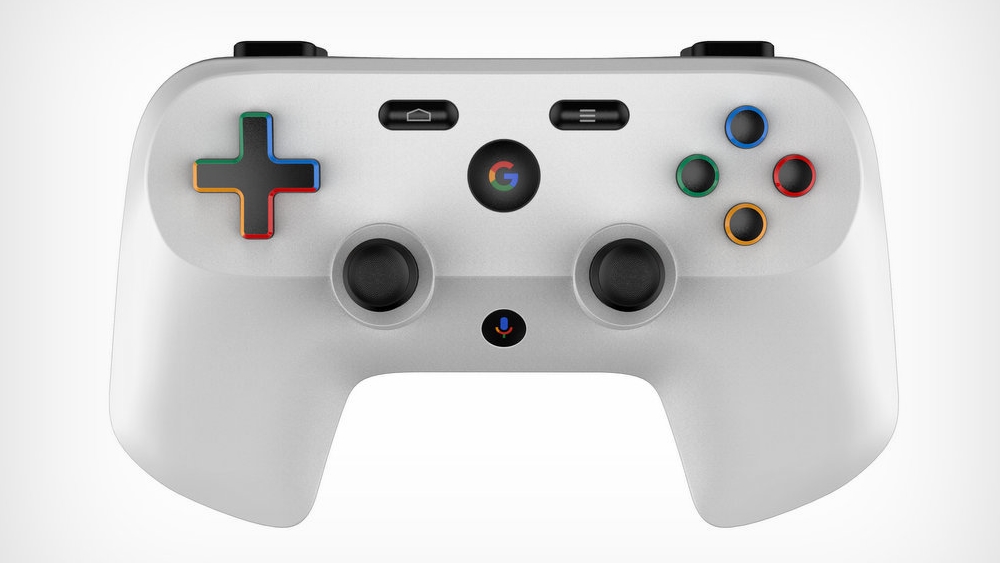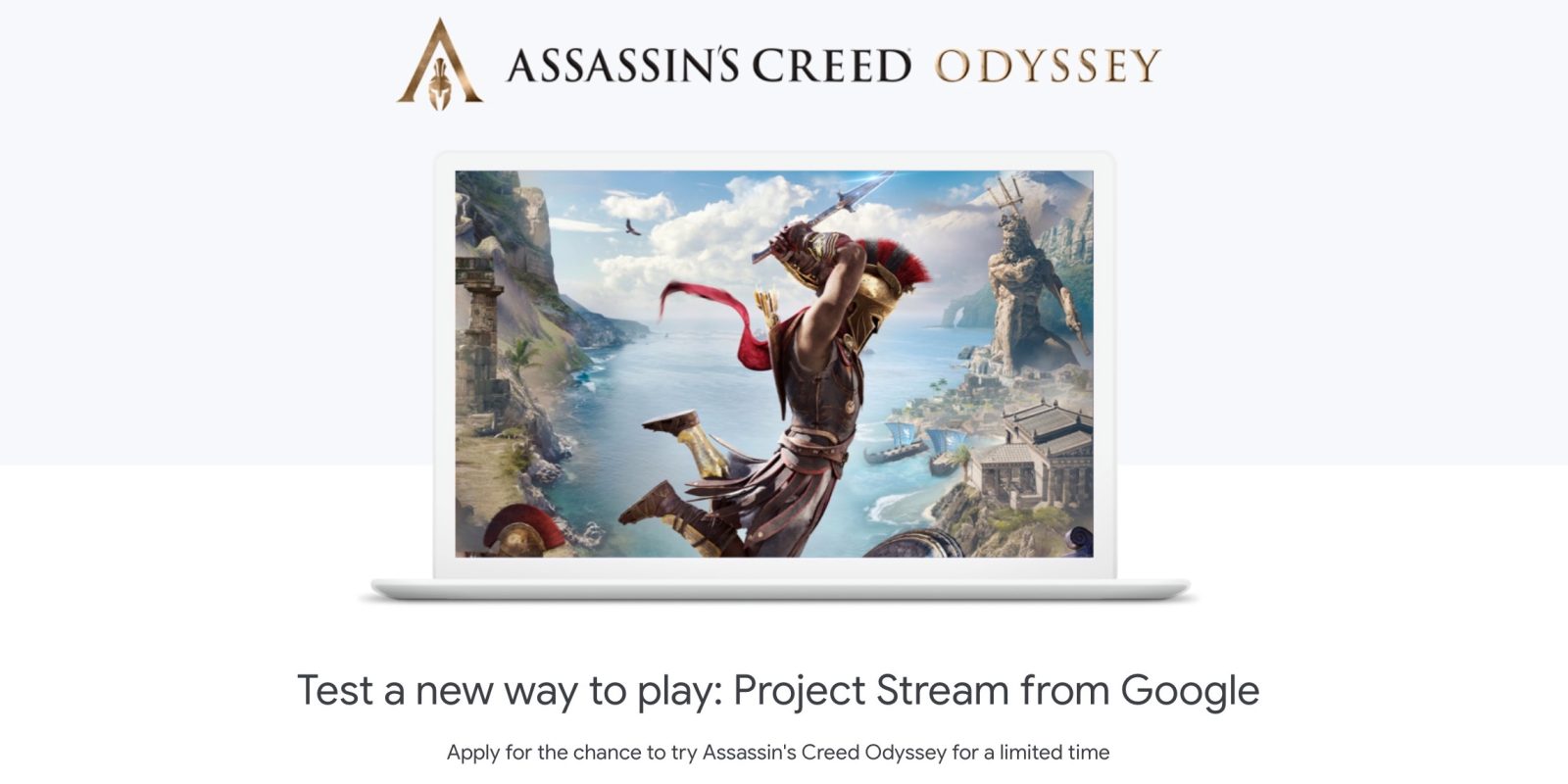The Google empire is gearing up to tackle gaming head-on. A few days ago, a mock-up for a controller made the rounds on social media. The render was based on a patent Google filed in January of 2019. While the inputs on the controller look familiar if you’ve played videogames within the last 10 years (2 joysticks, a d-pad on the left, 4 face buttons on the right and a set of bumpers and triggers) there are some noticeable standouts. Mainly the start/select combo is replaced with the familiar home and menu buttons from older android devices. In the center of the controller is a rather large Google button which typically works as a home button on other controllers, it’ll be interesting to see what type of function is mapped here. And in a surprising twist, there appears to be a button to activate the Google Assistant, found typically in Google Home device as well as most Android phones. There also appears to be a USB-C charging port. While there are definitely some new additions to the controller, the core inputs remain unchanged from your typical PS4 / Xbox / or Nintendo Controller. Why fix what isn’t broken?

Luckily it doesn’t look like we’ll have to wait long to find out new information on the controller either. Google has sent out invites for a press conference on March 19th during GDC 2019. While we don’t know officially what’s being announced until the day of the event, it’s easy to guess that the announcement will focus heavily on Project Stream and where it will go in the future. Be it an actual hardware console you connect to your TV, or a service you can sign-up for and pay a monthly fee a-la-Netflix to play any game you want from your browser. It’s apparent that Project Stream is Google’s entry into the video game space.
Project Stream was a beta service that ran from October 5th through January 15th, that allowed you to play a copy of Ubisoft’s Assassin’s Creed Odyssey within your Chrome browser. Regardless of what type of processing power your device had, be it a $100 Chromebook or a beastly $2000 gaming PC, you were able to play the latest installment in the Assassin’s Creed franchise by literally just plugging in a controller to your computer via USB and visiting the Project Stream web-page on your internet connected device. Even more impressive than getting it to run on any laptop or desktop computer (mobile version of Chrome was not supported in the beta if it will in the full release remains to be seen) is the fact that latency and lag were kept to a minimum. In my short time with the demo, on a computer with an approximate 100mb connection, I didn’t experience any significant slow-downs or delays. The game was playable and enjoyable. While that in no way says that it was issue free, the fact that the game ran smoothly and didn’t stop every 5 minutes to buffer or have 5 – 10 seconds of input delay speaks volumes to how optimized the tech is that Google has.

Google’s not the only one who’s putting their eggs in the “streaming video games” basket either. Sony has their own version known as PlayStation Now, available on both PS4 and PC. Microsoft recently announced xCloud, which’ll be their offering. And in Japan Nintendo has experimented with offering timed access to certain games such as Resident Evil 7 and again Assassin’s Creedy Odyssey, directly to Nintendo Switch. Neither of those games are available in the west (streaming or otherwise) or even offered to play locally on the Switch.
I’m really excited about this tech and the possible applications that this will mean for gaming in regards to accessibility. However, not everyone has access to a gaming pc hooked up via ethernet to a 100mb connection. Some people have way less speed and stability on their devices, and this may not be an option for everybody. Optimization of network code will only get Google so far. If the infrastructure isn’t in place in rural or remote areas, there may be some customers who are left behind with this direction the gaming industry seems to be going in. Hopefully, Google has taken this into consideration and is prepared to make gaming history.